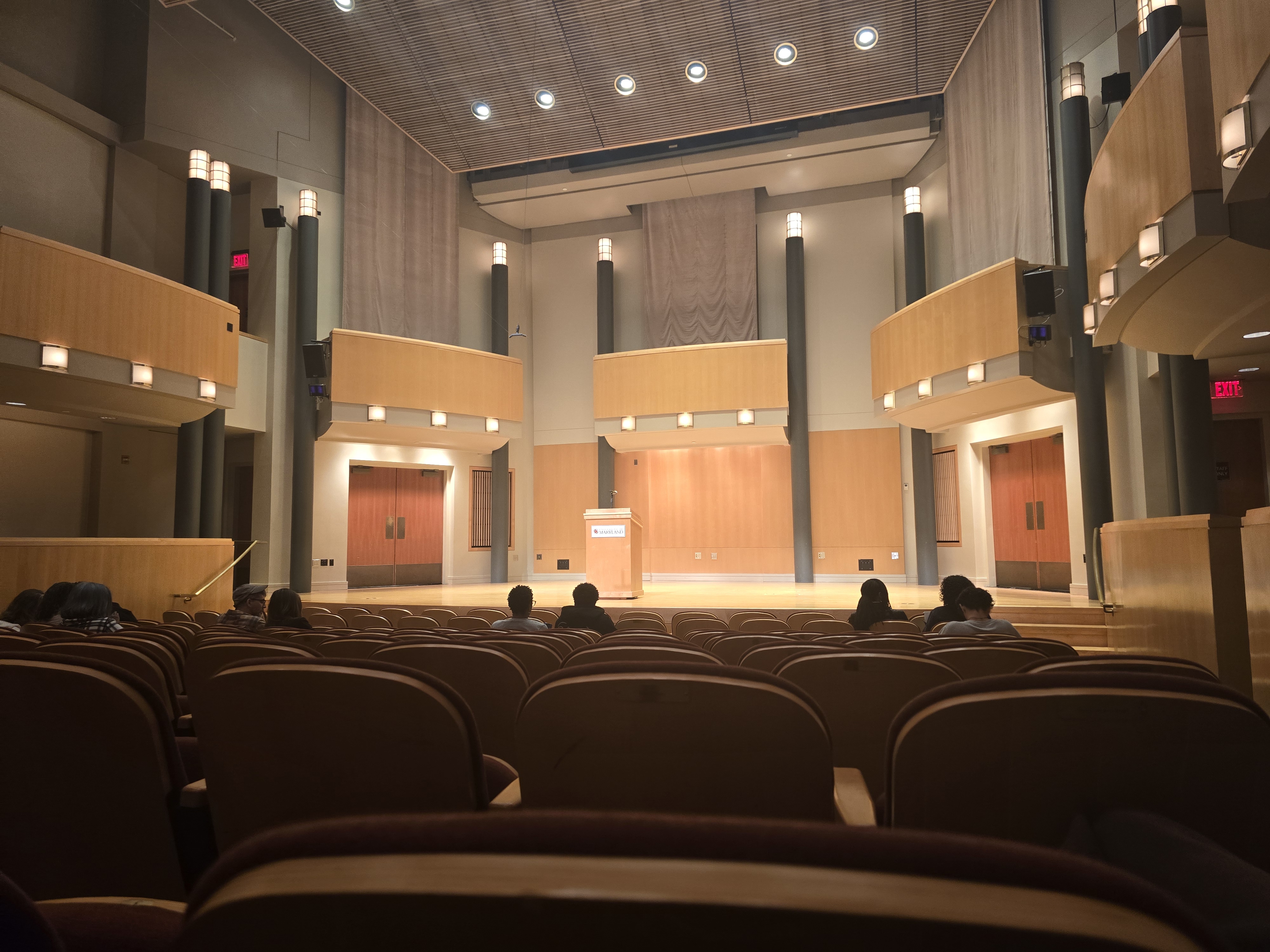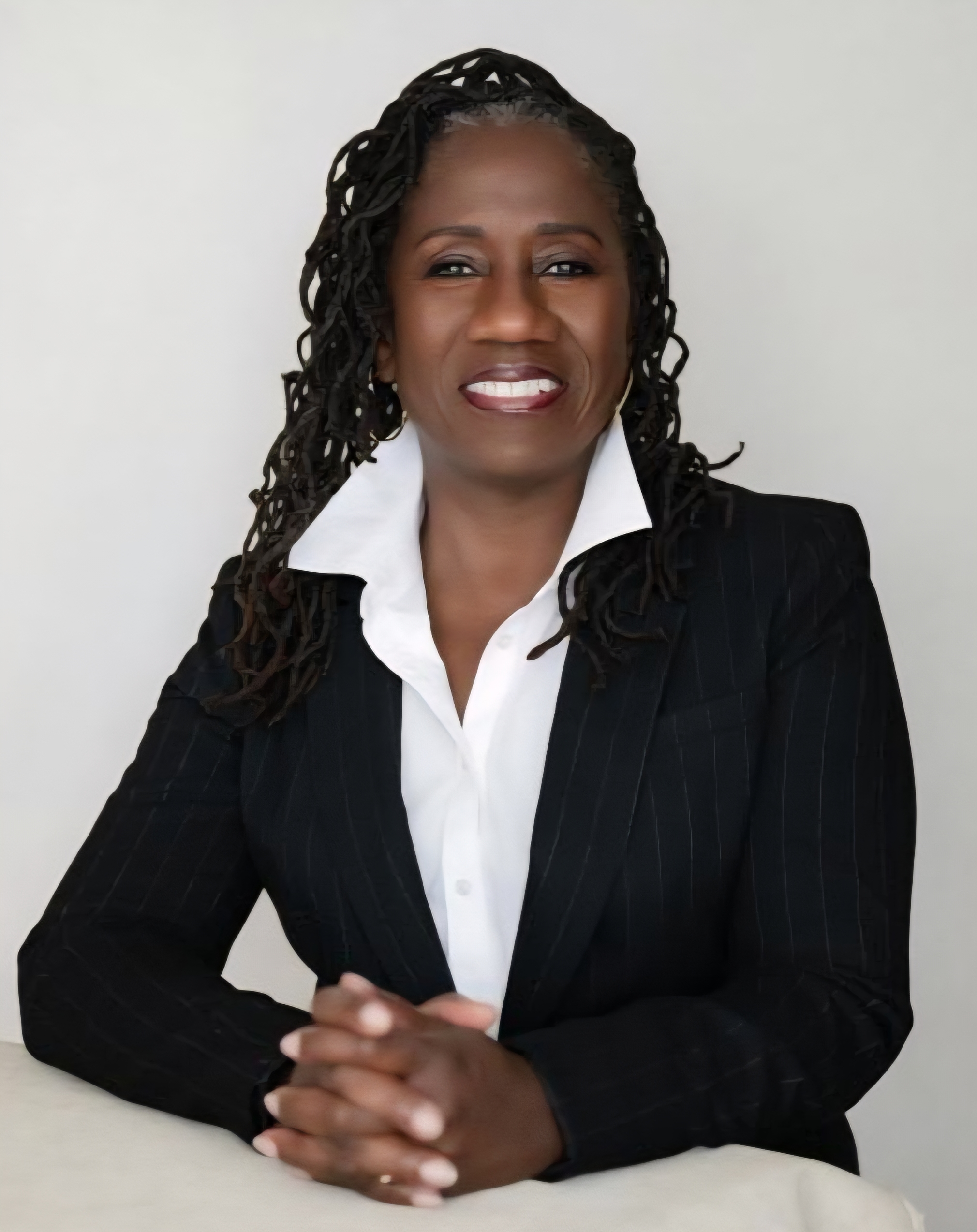14th Amendment Presentation - Sherrilyn Ifill
November 3, 2025 - Gildenhorn Recital Hall, Clarice Smith Performing Arts Center, University of Maryland, College Park, MD

Figure 2: The stage of the presentation, prior to the event

Figure 1: Sherrilyn Ifill, presenter of the event
The main topic of this talk was the 14th amendment to the United States Constitution, which was ratified in 1868, only a few years following the conclusion of the civil war. The presenter had discussed how rich the 14th amendment is, and she stated how she would likely not be able to discuss all of it within the allotted time for the talk, and as a result, the talk was not able to cover sections 3 and 4 of the amendment, while being able to discuss sections 1, 2, and 5. Something that was interesting that she mentioned was that the Constitution has a way to punish states who restrict the voting rights of some of its citizens, which is to remove that group of people from the state’s population for the purposes of congressional representation. In other words, the state would have less representation for representing the fewer amount of people, which seems like something that could be used in modern times, even though it has never actually been used before, according to Ifill. In addition, Ifill also discussed some of the history surrounding this amendment, including the reasoning behind the wording on certain aspects, discussing what the second framers, as she described them, wanted to achieve, and what they wanted to prevent, such as a law that any future president and congress could theoretically overturn.
Due to events of the past year or two, I am aware of the content of section 3 of the 14th amendment, and that was the part that I was most interested in hearing about, despite it not being discussed at all. However, I was not as familiar with the contents of the other sections, and so it was interesting hearing what Ifill had to say about them. For example, one thing that she stated was that the second framers deliberately wrote the first section so that it purposefully states citizenship of the United States prior to state citizenship. She mentioned that the reasoning behind this was to create a sense of national identity, which at the time wasn’t as prominent as state citizenship was. Although I understand this reasoning, I disagree that it has any weight regarding the power of the Constitution, as the order of two statements, such as the statements declaring national and statewide citizenship, doesn’t change the meaning of either statement, like she suggested.
Another thing that she discussed was some of the ideas for the 14th amendment that ultimately were not included in the final version. One of these things was the ban of poll taxes. Ifill stated how the idea of an abolition of poll taxes was desired, as there was concern about states using poll taxes to prevent certain individuals from voting. However, it ultimately was not included because there was a fear that the inclusion of such would threaten support from northern states, who had their own laws surrounding voting. As annoying as this may have been, I agree with this decision, as it could have risked the ratification of the rest of the amendment. Another point that Ifill made was about her own research with the history surrounding the racist conditions that lead to the passage of this amendment. Although related, I don’t see the history as super intertwined with the amendment, as the power of the Constitution is not directly related to the background of each amendment, but rather the content of what the amendment says and means.
One of Ifill’s final points was how the 14th amendment, like the rest of the Constitution, is only as powerful as the power that the people give it. In discussing this, she mentions how today, people are continually being reminded that there was once a time where the people had to fight for the freedoms and rights that their descendants now take for granted, encouraging that as those descendants, we must continue to fight for those freedoms without stopping and assuming that they will always be guaranteed. This is something that I agree with, knowing how the current situation of the United States is. Interestingly, as she discussed this as well as during the Q&A session afterwards, I got the impression that she would encourage physical violence, and potentially evening rioting, in order to guarantee the freedoms and rights that are currently being taken away from American citizens. On the one hand, it is hardcoded within me to never do anything that would hurt other people, and so I would never participate in any form of riot or support violence. However, I am also a very logical person, and sadly, given the current circumstances, the logical response is not a preferred one. In other words, I’m not sure whether I would agree with that last statement or not.




